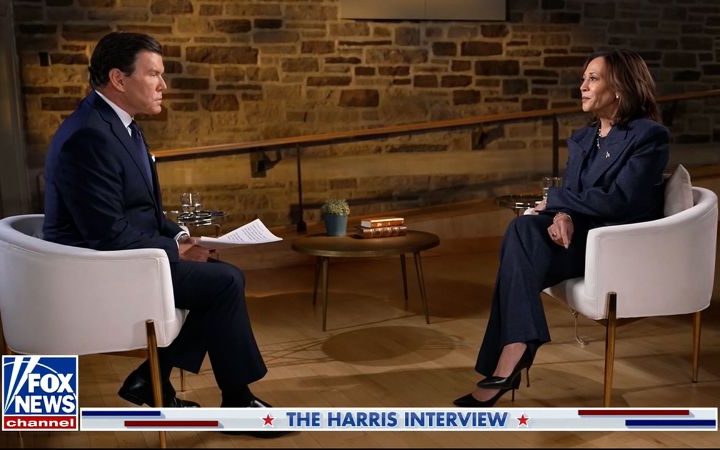The legal battle over a controversial Texas immigration law could eventually give the Supreme Court a chance to revisit a historic ruling that largely struck down Arizona’s “show me your papers” law and reaffirmed the federal government’s “broad, undoubted power” over immigration.
Texas’ SB 4, which allows state officials to arrest and detain people they suspect of entering the country illegally, is back in court Wednesday at the 5th US Circuit Court of Appeals in New Orleans.
The law is on hold after three judges blocked it while they consider whether it is constitutional. That same panel will hear Wednesday’s arguments.
The majority ruling in the 2-1 decision last month leaned heavily on the 2012 Supreme Court case known as Arizona v. United States, in which the high court struck down several provisions of an Arizona law, SB 1070, intended to deter illegal immigration.
Legal experts believe the Texas case could eventually give the majority-conservative Supreme Court an opportunity to take another look at the federal government’s long-held control over immigration policy.
“This would be probably one of the most radical changes the Supreme Court has made in the immigration field,” said Andrew Schoenholtz, a professor at Georgetown Law and an expert on immigration law, referring to the possibility that the high court overturns its 2012 ruling. “It’s that much of a change that Texas is asking for.”
Denise Gilman, a professor at the University of Texas School of Law, agreed that the state’s goal is to get the justices to reverse the Arizona decision.
“It would have been incredibly difficult for the 5th Circuit to let this law stand under existing Supreme Court precedent,” she said. “The Supreme Court is another matter. The Supreme Court can overturn its own precedent, and that’s clearly what the state of Texas wants it to do.”
SB 4 was initially blocked by a federal judge in late February in a pair of cases brought by the Biden administration, two immigrant advocacy groups and El Paso County. Texas quickly appealed that decision to the 5th Circuit. In the meantime, the Supreme Court had allowed the state to enforce the law for a brief time on March 19, only for the appeals court to put it back on hold hours later.
The Arizona law is a high-profile example of what happens when states attempt to take immigration policy into their own hands.
Then-Arizona Republican Gov. Jan Brewer signed the Support Our Law Enforcement and Safe Neighborhoods Act, known as SB 1070, into law in 2010.
Chief among the law’s provisions was one that allowed police to check a person’s immigration status during traffic stops or other law enforcement actions if the official had “reasonable suspicion” to believe the person was in the country unlawfully. That part of SB 1070 led critics to dub it the “show me your papers” law.
SB 1070 also made it a state crime for “unauthorized immigrants” to fail to carry registration papers and other government identification; forbade people unauthorized for employment in the US to apply, solicit or perform work; and authorized police to arrest undocumented immigrants without a warrant when “probable cause” existed that they committed a crime that made them deportable.
Legal challenges to the law quickly ensued. The Supreme Court upheld the “show me your papers” part of the law and struck down the three other parts.
Perhaps most importantly, the majority ruling penned by Justice Anthony Kennedy reaffirmed the federal government’s authority over immigration matters. The five-justice bloc said that “federal power to determine immigration policy is well settled” and that its “authority rests, in part, on the National Government’s constitutional power to ‘establish an uniform Rule of Naturalization.’”
“The National Government has significant power to regulate immigration,” Kennedy wrote. “Arizona may have understandable frustrations with the problems caused by illegal immigration while that process continues, but the State may not pursue policies that undermine federal law.”
Gilman said the court’s decision in Arizona is significant because Texas’ SB 4 essentially contains the concepts the court struck down in that case.
“The (Arizona) law that made a crime out of immigration status was struck down by the Supreme Court as being in conflict with federal authority to govern immigration enforcement,” she said. “And that’s a really significant part of what the Texas law has in place.”
Among the three justices who dissented in the 2012 case, two are still on the court: Justices Clarence Thomas and Samuel Alito. Justice Antonin Scalia died in 2016. (Justice Elena Kagan disqualified herself from the 2012 case.)
Jessica Bulman-Pozen, a professor at Columbia Law School who specializes in federalism, said the arguments pushed by Texas in defense of SB 4 hew most closely to the dissent penned by Scalia, which concluded that Arizona’s law was enacted in an effort to enforce federal immigration law “more effectively.”
“The court did not think that was right as a descriptive matter about what was happening in Arizona, and I think it’s even more clearly incorrect here with respect to Texas,” Bulman-Pozen said, referring to the majority’s rejection of Arizona’s argument that it was attempting to address the Obama administration’s alleged inaction on immigration issues.
“The idea that what (Texas is) doing is in fact vindicating some kind of congressional judgment or congressional law against an executive that’s not enforcing (those laws), I don’t think that that’s a fair description of what’s happening here,” she said.
A considerable amount of daylight exists between the divided 5th Circuit panel that is weighing the legality of SB 4.
“Supreme Court authorities and the detailed statutory scheme governing who will be permitted to remain in the United States and removal procedures strongly indicate that Congress ‘occupies [the] entire field’ of unlawful entry and reentry of noncitizens as well as removal,” Chief Judge Priscilla Richman wrote in a decision that was joined by Circuit Judge Irma Carrillo Ramirez.
But Circuit Judge Andrew Oldham – a former Alito clerk – wrote in a lengthy dissent last week that he would have let Texas enforce the law while the legal challenges continue.
Oldham leaned into a more limited reading of the Supreme Court’s 2012 decision in Arizona, saying it “certainly does not suggest States may never supplement any federal immigration laws.”
He argued the Arizona decision leaves some room for parts of SB 4 to withstand scrutiny, particularly the policy that allows Texas judges to order immigrants to be deported.
“The Arizona Court did not hold – as plaintiffs seem to believe – that the State was preempted from the field of removal because of ‘some brooding federal interest’ like foreign policy or national security,” wrote Oldham, who was also previously general counsel to Texas Republican Gov. Greg Abbott, who signed SB 4 into law.
Texas’ attorneys have raised those same claims.
“Arizona did not find that state laws concerning entry and removal were field preempted, and nothing in Arizona precludes States from regulating entry and reentry or issuing return orders,” the attorneys wrote.
Whether those arguments have any salience before the nation’s highest court if the case comes before the justices is another question.
“To the extent the court revisited Arizona in this context, it would basically be making states authorities with respect to entry and removal in the immigration space. And that would be an extreme departure from precedent in our nation’s history,” Bulman-Pozen said. “It’d be quite shocking.”
Read the full article here







